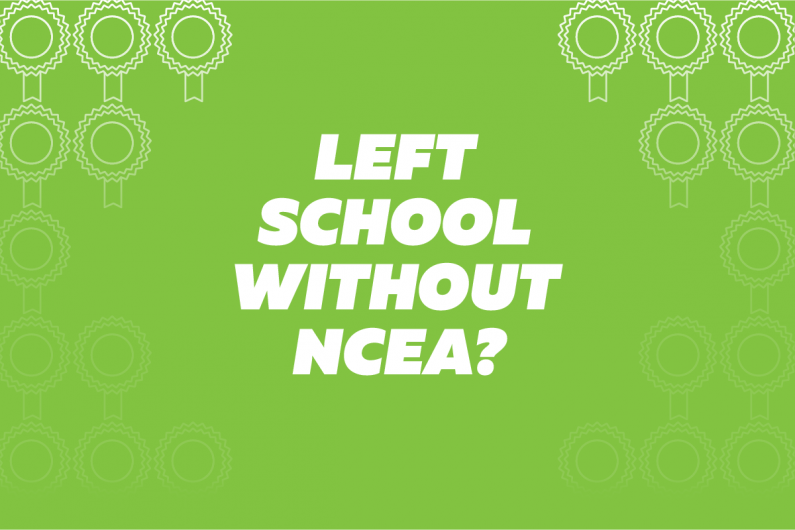Upskill after you leave school

How to get NCEA and other qualifications once you've left school.
What's on this page?
Lots of people decide to upskill after they’ve left school. Whatever your age, it’s a great way to start a new career.
How to upskill
You can continue studying for NCEA credits or choose other ways to upskill and get qualifications, like doing an apprenticeship or a foundation course.
Even if your life is too busy for full-time study or training, you might still be able to fit some study around everything else.
Remember you can start studying at any time.
Get NCEA outside of school
You can earn NCEA credits outside of school.
Te Kura
Te Kura offers distance learning programmes for all ages.
You can study a wide range of subjects up to NCEA Level 3. Enrol just for the credits you need or take a full-time study programme.
If you’re 16 to 19 years old and eligible to study at Te Kura, it’s free.
Otherwise, you may be able to apply as a fee-paying student.
- Te Kura website - how to find out if you are eligible to study at Te Kura
- Te Kura website - find out how to enrol to study NCEA
Youth Guarantee
Youth Guarantee is aimed at young people who have few or no qualifications.
If you’re 16 to 24 years old and eligible, you can learn new skills and study towards a NCEA qualification with the Youth Guarantee programme.
These courses are fees-free and will get you started in a career in a trade, or in an industry like hospitality, health care or computing.
You can choose from education providers all over Aotearoa. You can study some courses by distance or online learning.
Other ways to upskill
You may be able to start an apprenticeship or study without having NCEA credits. You can find out more by contacting the education provider where you want to enrol.
Apprenticeships
Doing an apprenticeship can help you get the skills you need to work in industries like building, hairdressing or agriculture.
You earn while you learn, and finish with a Level 4 New Zealand certificate.
You need to be 16 years or older when you start. There’s no upper age limit.
Each industry has different entry and training requirements.
Check with the relevant education provider to find out about entry requirements.
They can also let you know the best way to meet these requirements if you don't already have the credits you need.
Bridging and foundation courses
Most education providers offer courses at Levels 1 to 3 – and sometimes Level 4 – that lead into further tertiary study. They’re a good option if you’ve been out of school for a while or want to build study skills and confidence.
The courses can help you meet the entry requirements for a degree course. Some let you explore an area of study and decide if you want to continue with it at a higher level.
Bridging and foundation courses usually take 4 months to a year.
Certificate courses
Certificate courses can give you:
- the qualifications you need for an occupation
- credits to enter apprenticeship training or a university degree course.
For example, with a New Zealand Certificate in Health and Wellbeing (Level 2 to Level 4) you could:
- get a job as a health care assistant
- keep studying towards a nursing degree.
Course entrance as a mature student
If you’re over 20, you may be able to enrol at a university, Te Pūkenga or a private training establishment without a university entrance qualification.
Find out more about possibilities for adult or mature students on providers’ websites or get in touch with their student liaison officer directly.
Micro-credentials
A micro-credential proves you’ve achieved specific skills or knowledge.
You may be able to use micro-credentials towards gaining a formal qualification.
The education provider will know what qualification a micro-credential may be used for.
Credit work or learning towards a qualification
If you’ve already got work skills or training credits, they could count towards a qualification.
Updated 9 Dec 2024